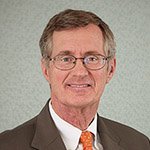The United States Supreme Court ruled on April 2 that automobile service advisors are exempt from overtime pay. The Court’s decision addressed an interpretation of a statute under the Fair Labor Standards Act (“FLSA”). In doing so, the Court rejected a 2011 Department of Labor (“DOL”) rule concluding that auto service advisors were not exempt. The Court’s decision reversed the Department’s long standing position on the issue.
History of Court Rulings
Basing its ruling in part on the DOL 2011 rule and its analysis of the FLSA statute that exempts “any salesman, partsman, or mechanic primarily engaged in selling or servicing automobiles” from overtime, the Ninth Circuit Court of Appeals had ruled in 2015 in Encino Motorcars, LLC v. Navarro, 780 F. 3d 1267 (9th Cir. 2015), that auto service advisors were not exempt. Ultimately, Encino Motorcars appealed decisions by the Ninth Circuit twice to the Supreme Court.
The first time around the Supreme Court concluded that the Ninth Circuit should not have given deference to the 2011 Department of Labor rule and sent the case back to the Ninth Circuit to be decided again in the absence of such deference. Encino Motorcars, LLC v Navarro, 579 U.S. ___, 136 S. Ct. 2117 (2016). However, when the case was remanded to the Ninth Circuit, it issued a second opinion concluding again that service advisors were not exempt. Encino Motorcars, LLC v Navarro, 845 F. 3d 925 (9th Cir. 2017).
Auto Service Providers are Salesmen Primarily
Encino Motorcars appealed to the Supreme Court a second time. This time the Supreme Court gave the issue full consideration, and on April 2, in a 5 to 4 opinion, the highest court in the land overruled the Ninth Circuit and the 2011 DOL rule. The Supreme Court found that because service advisors are salesmen primarily engaged in the servicing of automobiles, they fall within the exemption statute. The majority also bolstered its opinion by concluding that service advisors are also “primarily engaged in . . . servicing automobiles.” Four justices dissented from the opinion asserting that the majority had essentially construed the statute to recognize a fourth exempt occupation beyond salesmen, partsmen, and mechanics – that being automobile service advisors.
Supreme Court Declines to Construe Exemption Narrowly
Of interest to those who practice in FLSA law more generally, the majority specifically rejected the position that the oft-quoted standard FLSA principle that exemptions should be construed narrowly did not apply to this case and “should be rejected as a useful guidepost for interpreting the FLSA.” The Court specifically concluded that “because the FLSA gives no ‘textual indication’ that its exemptions should be construed narrowly, there is no reason to give them anything other than a fair (rather than a narrow) interpretation.” This important part of the decision may signal an end to the traditional argument made by employees that exemptions are only to be considered narrowly, which should be welcomed by business and government employers.
Automobile dealers are advised to review their current payroll practices with regard to service advisors. Sands Anderson’s Employment Team is available to assist with this and other employment related issues.
